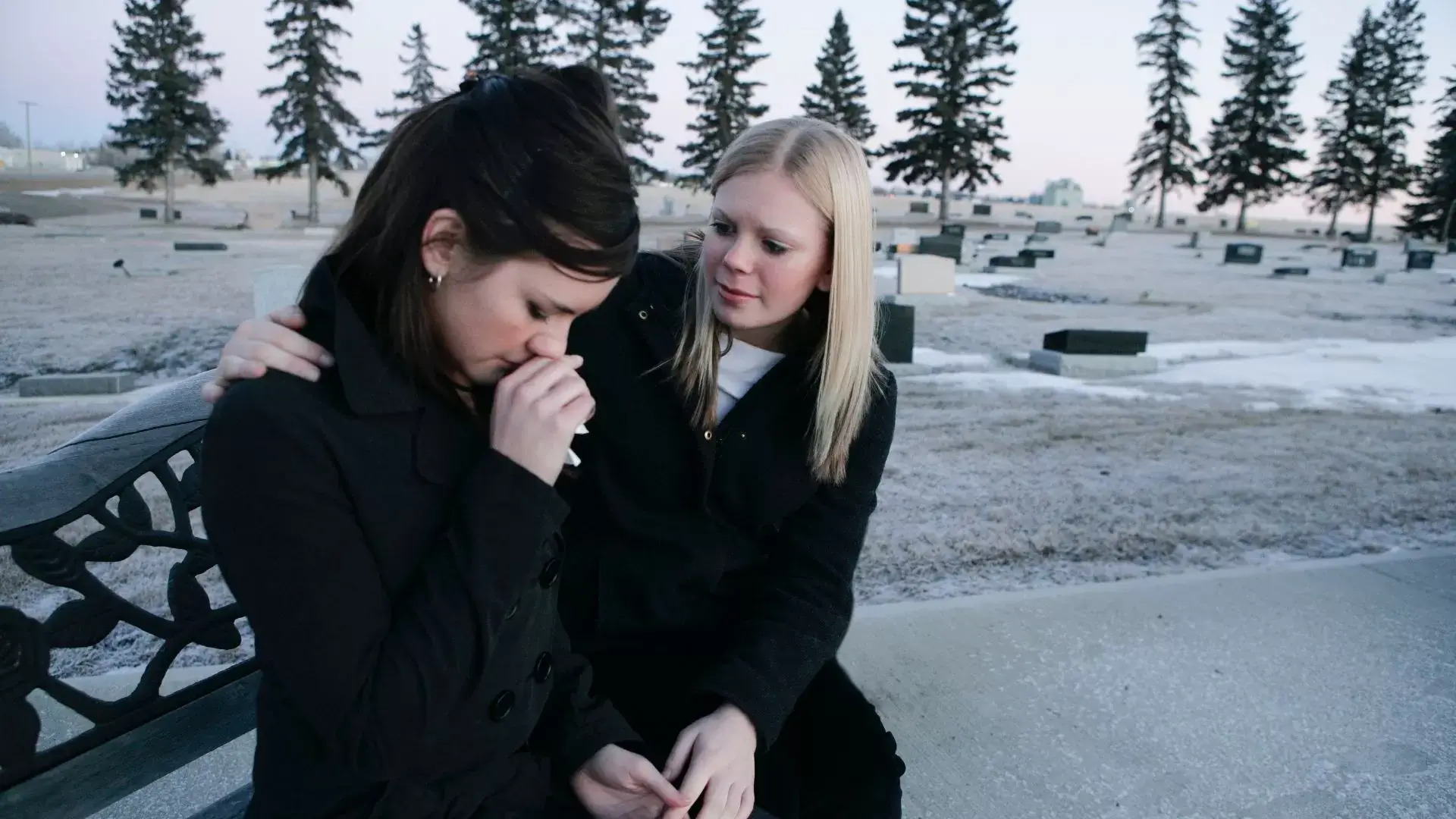When supporting someone who’s grieving, we need to choose our words carefully. Let’s avoid diminishing their pain or suggesting they should “get over it.” Imposing our religious beliefs or comparing our grief to theirs can compound their sorrow. It’s important not to set timelines or push them to talk before they’re ready. Instead, we should foster open dialogue and allow them to express their feelings without judgment. By creating a nurturing environment, we can offer genuine support. There’s so much more to explore about how our words impact those in grief and how we can better help them.
About Oakville Psychotherapist
As we navigate the complexities of grief, seeking support from an Oakville psychotherapist can provide us with the compassionate guidance we need to heal. Grieving is an intensely personal journey, and sometimes we need a safe space to express our feelings. A skilled therapist can help us process our emotions, offering tools and strategies to cope with our loss.
At 243 North Service Rd W #106F, Oakville, ON L6M 3E5, we’ll find a welcoming environment where we can share our thoughts without fear of judgment. The therapist’s empathetic approach encourages open dialogue, allowing us to explore the depth of our grief. They understand that everyone’s experience is different, and they tailor their methods to suit our unique needs.
When we reach out by calling (647) 360-5880, we take a significant step toward healing. The support we receive can empower us to navigate our feelings, understand our grief, and ultimately find a path forward. By working with an Oakville psychotherapist, we’re not just seeking help; we’re embracing the possibility of healing and renewal in our lives.
Avoid Imposing Your Religious Beliefs
When supporting someone who is grieving, it’s important we avoid imposing our religious beliefs, as this can unintentionally add to their pain rather than provide comfort. Everyone processes loss differently, and our spiritual views might not resonate with their experience. Instead of offering our beliefs as solutions, we should listen and acknowledge their feelings.
We might feel inclined to share comforting phrases like, “They’re in a better place,” but these can feel dismissive to someone grappling with their grief. Instead, let’s create a space where they can express their emotions freely, without the worry of judgment or unsolicited advice.
By respecting their spiritual journey, we show our solidarity and understanding. It’s crucial we ask open-ended questions about what they need or how we can support them. This approach fosters trust and connection, letting them know they’re not alone in their pain.
Ultimately, our role is to stand beside them, not to lead them down a path we think is right. By focusing on empathy and understanding, we can offer genuine support during one of the toughest times in their life.

Don't Diminish Their Pain or Loss
It’s essential we never downplay someone’s grief or the significance of their loss, as each person’s experience is deeply personal and valid. When we hear someone say, “At least they lived a long life,” or “You’ll get over it in time,” it can feel dismissive. Such statements can unintentionally minimize the depth of their pain. We must remember that no two relationships are alike, and the bond shared with a loved one shapes how we grieve.
Instead, let’s focus on listening and validating their feelings. We can say things like, “I can’t imagine how hard this is for you,” or “It’s okay to feel however you feel.” These expressions show we acknowledge their grief without trying to fix it or rush them through it.
We should also be mindful of our own discomfort; it’s natural to feel uneasy around sadness, but we shouldn’t let that lead us to trivialize their experience. By honoring their pain and allowing them to share their story, we create a safe space for healing. Together, we can support our loved ones through their journey, ensuring they know their feelings matter.
Refrain from Being Overly Forceful or Invasive
Supporting someone in grief means understanding the importance of giving them space to process their emotions without feeling pressured or overwhelmed by our own expectations. When we approach a grieving person, it’s important to remember that they’re traversing a deeply personal journey. Pushing them to talk or share their feelings can sometimes lead to frustration or discomfort.
Instead, let’s create an environment where they feel safe to express themselves at their own pace. We can offer our presence and listen when they’re ready to share, without the pressure to fill every silence with conversation. It’s okay if they don’t want to engage right away; our role is to be supportive, not intrusive.
We should also be mindful of suggesting activities or distractions. While our intentions might be good, this can feel overwhelming to someone who’s still in shock or deeply saddened. By respecting their need for solitude or quiet reflection, we’re showing them that they’re not alone, even in their silence. Ultimately, we want to be gentle, patient, and genuinely present, allowing them to manage their grief in their own way.

Resist the Urge to Compare Your Grief to Theirs
Avoiding the tendency to compare our grief with someone else’s can be essential in providing genuine support during their difficult time. When we share our own experiences of loss, we might unintentionally dismiss or overshadow their unique pain. Each person’s journey through grief is deeply personal, shaped by individual relationships and circumstances.
When we say things like, “I know how you feel; I lost my pet,” we risk minimizing their experience. Instead of creating a bond, comparisons can lead to feelings of isolation for the bereaved. They may feel that their grief isn’t valid or significant enough when set against our own.
Instead, let’s focus on listening and validating their feelings. By allowing them to express their sorrow without interruption or comparison, we show them that their grief matters. We can say, “I can’t imagine how hard this is for you,” which opens the door for them to share their emotions freely.
In this way, we can be present for them, creating a safe space where they feel understood and supported, rather than overshadowed by our own experiences. Let’s honor their grief as they navigate this challenging journey.
Don't Try to “Fix” Their Grief or Offer Quick Solutions
Trying to ‘fix’ someone’s grief or offering quick solutions can often lead to frustration and alienation, as grief is a complex process that simply can’t be resolved with easy answers. When we attempt to fix someone’s pain, we may unintentionally dismiss their feelings or undermine their experience. Grieving isn’t a checklist; it’s a deeply personal journey, and everyone navigates it differently.
Instead of trying to solve the problem, let’s focus on being present. Our role is to offer a listening ear and a compassionate heart. We can create a safe space for our loved ones to express their emotions without fear of judgment. It’s essential to acknowledge their pain and validate their feelings, even if we feel helpless to change their situation.
We might find ourselves wanting to say, “It’ll get better,” or “Look on the bright side,” but these phrases often come off as minimizing. Instead, let’s simply say, “I’m here for you,” or “I can’t imagine what you’re going through.” By doing this, we offer genuine support, allowing our loved ones to grieve in their own way and at their own pace.
Avoid Setting Timelines or Expectations for Their Grieving Process
Setting timelines or expectations for someone’s grieving process can unintentionally add pressure and create feelings of inadequacy, as each person’s journey through grief is unique and unfolds in its own time. We all experience loss differently, and some may find themselves traversing a complex web of emotions long after others appear to have moved on. When we impose our own timelines, we risk invalidating their feelings and experiences.
Instead of suggesting when someone should feel better or how long they should grieve, we should create a safe space for them to express their emotions, however long that may take. This means listening without judgment and offering our support in a way that respects their individual pace. It is critical to remind ourselves that grief isn’t linear; it can ebb and flow unexpectedly.

Be Careful Not to Assume or Make Presumptions
We need to be cautious about making assumptions regarding how someone is feeling or coping with their grief, as this can lead to misunderstandings and further isolation. Each person’s journey through loss is unique, and what may seem like a common reaction to us might not resonate with them at all.
When we presume to know how someone should feel, we risk minimizing their experience. For instance, saying, ‘You should be over this by now,’ can feel dismissive and hurtful. Instead, we should listen actively and allow them to express their feelings without judgment.
It’s also crucial to recognize that grieving individuals may have complex emotions, including anger, relief, or even joy at times. We shouldn’t label these feelings as inappropriate. Instead, we can create a safe space for open dialogue, encouraging them to share their truth without fear of our expectations.
Seek Help from Our Registered Psychotherapists
Finding support can be incredibly beneficial for those traversing grief, and seeking help from our registered psychotherapists in Oakville offers a compassionate space to explore these complex emotions. We acknowledge that grief can feel overwhelming, and sometimes, talking to someone who’s trained to listen can make all the difference.
In our sessions, we’ll create an environment where you can express your feelings without judgment. We recognize that everyone experiences grief differently, and our therapists are equipped to tailor their approaches to meet your individual needs. You don’t have to navigate this journey alone; we’re here to support you every step of the way.
By engaging in therapy, we can help you process your loss, identify coping strategies, and work through the feelings that arise. We’ll also empower you to find meaning and connection in the midst of pain, fostering resilience as you begin to heal.
Reaching out for help doesn’t signify weakness; it demonstrates strength and a commitment to your well-being. Together, we can honor your loved one’s memory while nurturing your emotional health. Let’s take this brave step towards healing together. Contact us today!



